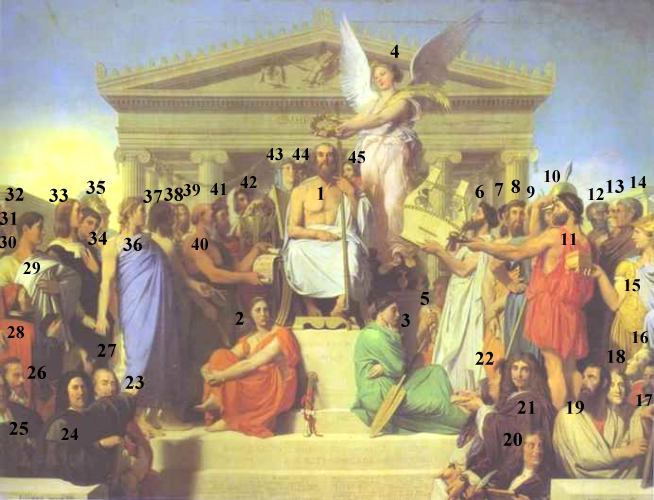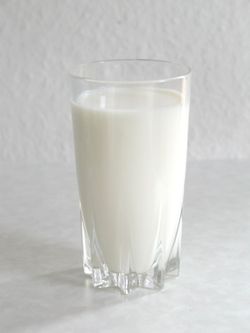A CRITIQUE OF THE APOTHEOSIS OF HOMER BY INGRES
1962 0900 KANT AVEC SADE VERSION PUBLIÉE DANS CRITIQUE22 A CRITIQUE OF LOCALIZED REALISM 1 INTRODUCTION WORRALL
22 POSITIONS EAST ASIA CULTURES CRITIQUE 72 (1999) 307342
22 RADICAL ORTHODOXY’S CRITIQUE OF TRANSCENDENTAL PHILOSOPHY AND ITS
A CRITIQUE OF SUPER MARIO GALAXY FOR NINTENDOS WII
A CRITIQUE OF THE 2001 PRICEWATERHOUSECOOPERS REPORT ON WATER
Ingres’ Apotheosis of Homer “is the first painting that offers a literal elaboration of how the classical tradition was constituted” (Seigfried)
A Critique of The Apotheosis of Homer by Ingres
By: Heather Wahl

Ingres’ Apotheosis of Homer “is the first painting that offers a literal elaboration of how the classical tradition was constituted” (Seigfried). All of the great artists of history, including those who came after Homer’s time, surround Homer in his coronation and come baring gifts. I feel the impact of the painting, is to show that all of the greats from history, from other poets, to playwrights, and composers have Homer to thank for their inspiration and that is why they are honoring him by bringing gifts. “Ingres represented Homer as a dead weight at the center of his painting, at once the least embodied and the most embodied of any of the figures. He is the only one seated and facing front, pale and blind, compared with the play of colors, gestures, and glances that animates the surrounding company” (Seigfried). Even though the painting is centered around the epic master, he seems alone, with his two works, embodied in the people sitting at his feet. His poems, both portrayed as women, are the only women in the painting except for the angel giving Homer his crown, almost seem mad at one another. The Iliad, which is shown with a sword, is pouting, while the Odyssey, shown with an oar, has her head turned the other direction and appears to be angry because her right hand is propped up against face and her left arm is crossed across her body in defiance.
This critique of the Apotheosis of Homer, will examine the other figures surrounding
Homer, and try to explain the importance of their presence. In the Apotheosis of Homer
that resembles a ‘paint-by-number’ every individual is .
Horace who is hidden on the left side of the painting was acquainted with Virgil and Varius. He dedicated his life to literary pursuits, and he is known for his first book, the book of Satires. http://www.theatredatabase.com/ancient/horace_001.html
Peisistratus, who is also barely noticeable on the left side of the painting, was the son of Hippocrates, who was a Greek statesman who became the leader of Athens for a period of time. http://peisistratus.biography.ms/
Lycurgus (mythical) was the first legislator of Sparta is also placed in the background on the left side of the painting and is also barely noticeable. http://translate.google.com/translate?hl=en&sl=fr&u=http://agora.qc.ca/mot.nsf/Dossiers/Lycurgue&prev=/search%3Fq%3DLycurgue%26hl%3Den%26lr%3D
Virgil, who is drapped in the traditional poets garb, is considered the greatest Roman epic poet, due to his work the Aeneid. http://www.online-literature.com/virgil/
Rapheal, an Italian Renaissance painter. http://www.yesnet.yk.ca/schools/projects/renaissance/raphael.html
Sapho
Alcibiades, who is dressed in his weaponery, was a General and Athenian politician, pupil of Périclès and raise of Socrates. http://translate.google.com/translate?hl=en&sl=fr&u=http://agora.qc.ca/mot.nsf/Dossiers/Alcibiade&prev=/search%3Fq%3DAlcibiade%26hl%3Den%26lr%3D
Apelles, who is probably the most important Greek painter born. http://translate.google.com/translate?hl=en&sl=fr&u=http://agora.qc.ca/mot.nsf/Dossiers/Apelle&prev=/search%3Fq%3DApelle%26hl%3Den%26lr%3D
Euripides, “was one of the three great tragedians of classical Athens, along with Aeschylus and Sophocles”. http://euripides.biography.ms/
Menander
Demosthenes
Sophocles, “Greek tragic dramatist”. http://www.bartleby.com/65/so/Sophocle.html
Eschyle, a Greek playwright. http://www.gradesaver.com/ClassicNotes/Authors/about_aeschylus.html
Herodotus. http://www.sacklunch.net/biography/H/Herodotus.html
Orpheus
Linos
?
Musee
?
Pindar- http://pindar.biography.ms/
Hesiod- http://hesiod.biography.ms/
Plato
Socrates- http://www.2020site.org/socrates/
Pericles- http://www.sacklunch.net/biography/P/Pericles.html
Pheidias- http://phidias.biography.ms/
Michelangelo
Aristotle- http://library.thinkquest.org/18775/aristotle/bioar.htm
Aristarchus- http://aristarchus.biography.ms/
Alexander the Great- http://wi.essortment.com/alexanderthegr_rxdz.htm
Dante- http://www.waterfordschool.org/Dante/bio.htm
The Iliad
The Odyssey
Aesop
Shakespeare, one of the all time greatest playwrights. http://www.shakespeare-online.com/biography/
The Fountain ?
?
Mozart- http://w3.rz-berlin.mpg.de/cmp/mozart.html
Poussin- http://www.wga.hu/frames-e.html?/bio/p/poussin/biograph.html
Corneille- http://www.discoverfrance.net/France/Theatre/Corneille/corneille.shtml
Racine- http://www.discoverfrance.net/France/Theatre/Racine/racine.shtml
(Jean Bapiste Poquelin) Moliere- http://www.discoverfrance.net/France/Theatre/Moliere/moliere.shtml
Nicolas Boileau- http://www.britannica.com/ebc/article?tocId=9357609&query=Paris&ct=gen1
?
Fenelon- http://www.swissbyrds.com/fenelon.asp
Christoph Willibald von Gluck- http://www.classiccat.net/gluck_cw_von/biography.htm
Luis Vaz de Camoens- http://www.newadvent.org/cathen/03218b.htm
This an additional link that shows the Apothosis of Homer with numbers, except figure 45 and 46 are not known.
A CRITIQUE OF THE APOTHEOSIS OF HOMER BY INGRES
A CRITIQUE OF THE WRITINGS OF THE BENEDICTINE ANSELM
ADULTERY AS UTOPIAN CRITIQUE EXTRAVAGANCE AND PARODY IN FOURIER
Tags: apotheosis of, the apotheosis, critique, ingres, apotheosis, homer
- STATEMENT OF PRINCIPLES CONCERNING BRONCHIOLITIS OBLITERANS ORGANISING PNEUMONIA NO
- SUBMISSION BY THE NATIONAL CENTRE FOR VOCATIONAL EDUCATION
- DDCS 31 25072013 PRÉFET DE LA HAUTEGARONNE DIRECTION DÉPARTEMENTALE
- ROBERT L FARB INSTITUTE OF GOVERNMENT SUMMARIES OF RECENT
- REGULAMIN ZAKŁADOWEGO FUNDUSZU ŚWIADCZEŃ SOCJALNYCH URZĘDU MIASTA OPOLA I
- AGRUPACION VAL DO ULLA VILA DE CRUCES VEDRA BOQUEIXON
- SCHEDA DI ISCRIZIONE IL SOTTOSCRITTO RESIDENTE A
- CERNST2000053 FEBRUARY 2000 DESIGN AND CALCULATION OF AN EARTH
- CHIEF EXECUTIVE OFFICER UNITUS CAPITAL PAGE 7 POSITION SPECIFICATION
- CONDENSADORES DE HID DE TENTA ELECTRIC DE TAIWÁN
- NAME DATE IT’S CATCHING KEY WORDS INFECTIOUS PROCEDURE
- ESPECIALIDAD EXCURSIONISMO REQUISITOS Y RESPUESTAS 1 DISCUTE CON
- SLOVENSKÁ POŠTA A S POSTSERVIS SEKCIA LOGISTIKY BOJNICKÁ 14
- LIBERAL EDUCATION SPRING 2001 VOLUME 87 NUMBER 2
- ANSWERS TO FINAL EXAMS – SHORT COURSES LOCATED AT
- IMPUESTO SOBRE VEHÍCULOS DE TRACCIÓN MECÁNICA (CONSULTA VINCULANTE V094913
- CONSEJERÍA DE EDUCACIÓN Y FORMACIÓN PROFESIONAL DIRECCIÓN GENERAL DE
- LESSON 1 VECTORS AND COORDINATE SYSTEMS I POSITION VECTOR
- BIL 4837 TYP GENERAL BILL GB INB HOUSE IND
- YEMASSEE INDIAN NOTES LOCATED IN THE LOW COUNTRYTHE
- PREGUNTAS Y RESPUESTAS DE UNA ENTREVISTA DE TRABAJO 1
- LA CARTA DEBE IR CON PAPEL MEMBRETEADO DE LA
- PROBLEMAS RESUELTOS CAMPO ELECTRICO 8 CAMPO ELECTRICO I
- NEC TECHNOPHILE BUSINESS & EDUCATION SECTORS WITH ITS LCD
- BOARD OF UTAH STATE PARKS AND RECREATION MEETING DEPARTMENT
- BOARD OF REGENTS’ MEETING ACTIVITIES SCHEDULE JUNE 2122 2005
- DEPARTMENT FOR ENVIRONMENT FOOD AND RURAL AFFAIRS BIODIVERSITY
- LEDARINFORMATION KRISPLAN FÖR LEDARE I EN FÖRENING KAN EN
- CURRICULUM VITAE UNIVERSIDAD DEL CAUCA ADJUNTE UNA FOTOGRAFÍA RECIENTE
- SØKNAD TIL FYLKESMANNEN OM TILSKUDD 2013 FOREBYGGING AV UØNSKEDE
202021 UWOSHKOSH MEN’S SWIMMING & DIVING ROSTER NAME
 INSTÀNCIA PROCESSOS SELECTIUS DESEMBRE DEL 2017 SOLLICITANT NOM I
INSTÀNCIA PROCESSOS SELECTIUS DESEMBRE DEL 2017 SOLLICITANT NOM IPLAN DE ACTUACIÓN FUNDACIÓN NÚMERO DE REGISTRO EJERCICIO 1
SER Y ESTAR DEN 1 EJEMPLO DE CADA UNO
ABOUT SOME PROPERTIES OF FUNCTION SETS FOR WHICH THE
WZÓR UMOWY ZAŁĄCZNIK NR 4 DO SIWZ ZAWARTA W
成淵學生閱讀心得 □必讀書目編號 □選讀 書 名 PRIDE AND PREJUDICE 傲慢與偏見
CEMENT AND CONCRETE STANDARDS RESEARCH RESEARCH NEEDS RESEARCH COMPILED
GOVERNMENT OF THE REPUBLIC OF LITHUANIA RESOLUTION NO 541107
LE AN SEINE KÖNIGLICHE HOHEIT DEN GROSSHERZOG
ANEXA NR 1 LA HCL 222018 REGULAMENT DE ORGANIZARE
DOCKET NO 010R21220161 BETHEL NWACHUKWU § BEFORE THE §
šd Trimček Zagorje pp 65 1410 Zagorje Sdtrimcektk
CIUDADANOS DIPUTADOS LOS SUSCRITOS INTEGRANTES DE LA COMISIÓN DE
 KEMENTERIAN PENDIDIKAN DAN KEBUDAYAAN UNIVERSITAS DIPONEGORO FAKULTAS PSIKOLOGI JALAN
KEMENTERIAN PENDIDIKAN DAN KEBUDAYAAN UNIVERSITAS DIPONEGORO FAKULTAS PSIKOLOGI JALAN UNIVERSIDAD COMPLUTENSE MADRID FACULTAD DE CC DE LA INFORMACIÓN
UNIVERSIDAD COMPLUTENSE MADRID FACULTAD DE CC DE LA INFORMACIÓN P ROBIOTIKI V PREHRANI BRANKA ĐUKIĆ U
P ROBIOTIKI V PREHRANI BRANKA ĐUKIĆ UUMEAREN DATUAK DATOS DEL NIÑONIÑA IZENA NOMBRE
VERHÜTUNG UND BEKÄMPFUNG VON GEWALT GEGEN FRAUEN UND HÄUSLICHER
5 – M A N N A 2 0